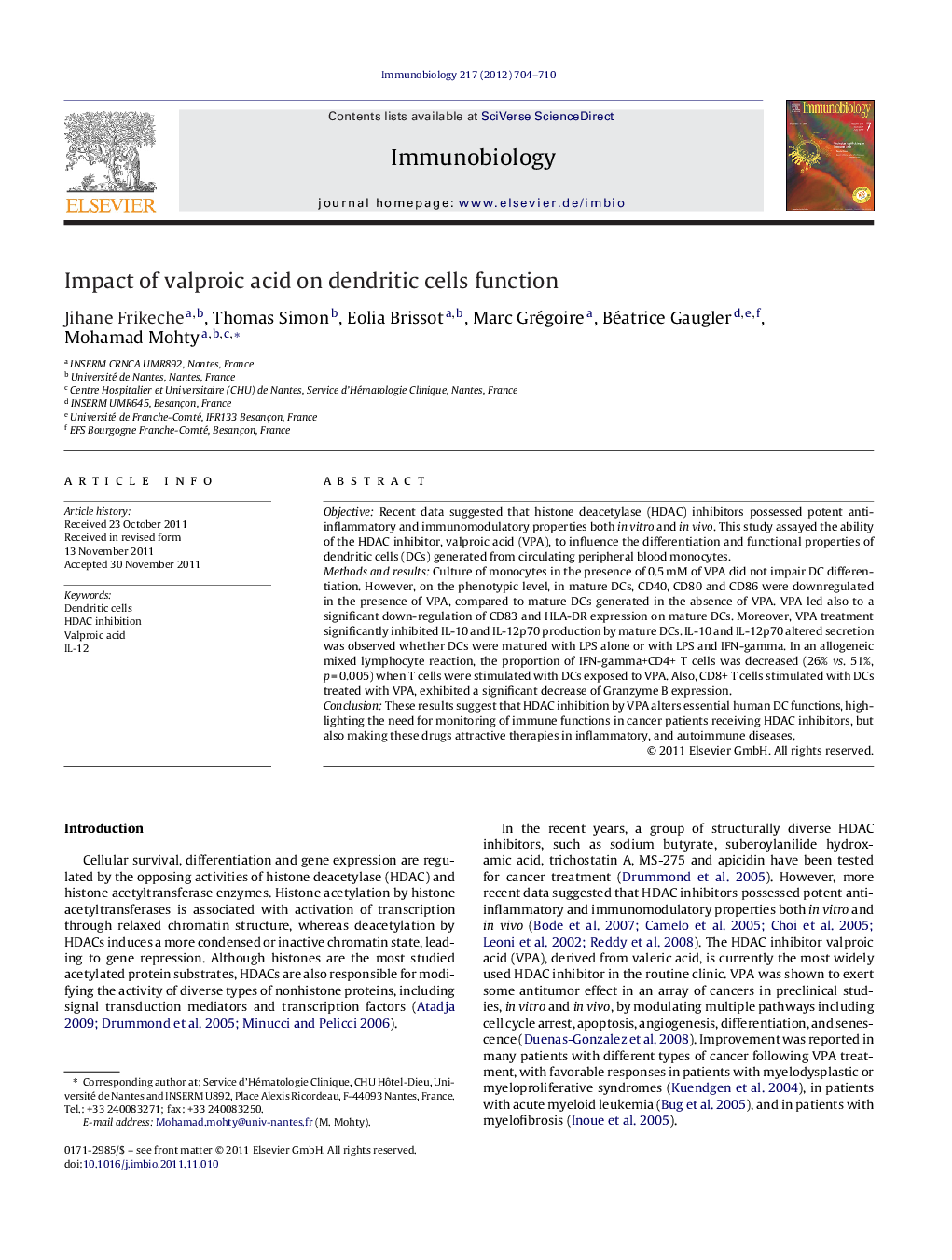| Article ID | Journal | Published Year | Pages | File Type |
|---|---|---|---|---|
| 2182941 | Immunobiology | 2012 | 7 Pages |
ObjectiveRecent data suggested that histone deacetylase (HDAC) inhibitors possessed potent anti-inflammatory and immunomodulatory properties both in vitro and in vivo. This study assayed the ability of the HDAC inhibitor, valproic acid (VPA), to influence the differentiation and functional properties of dendritic cells (DCs) generated from circulating peripheral blood monocytes.Methods and resultsCulture of monocytes in the presence of 0.5 mM of VPA did not impair DC differentiation. However, on the phenotypic level, in mature DCs, CD40, CD80 and CD86 were downregulated in the presence of VPA, compared to mature DCs generated in the absence of VPA. VPA led also to a significant down-regulation of CD83 and HLA-DR expression on mature DCs. Moreover, VPA treatment significantly inhibited IL-10 and IL-12p70 production by mature DCs. IL-10 and IL-12p70 altered secretion was observed whether DCs were matured with LPS alone or with LPS and IFN-gamma. In an allogeneic mixed lymphocyte reaction, the proportion of IFN-gamma+CD4+ T cells was decreased (26% vs. 51%, p = 0.005) when T cells were stimulated with DCs exposed to VPA. Also, CD8+ T cells stimulated with DCs treated with VPA, exhibited a significant decrease of Granzyme B expression.ConclusionThese results suggest that HDAC inhibition by VPA alters essential human DC functions, highlighting the need for monitoring of immune functions in cancer patients receiving HDAC inhibitors, but also making these drugs attractive therapies in inflammatory, and autoimmune diseases.
